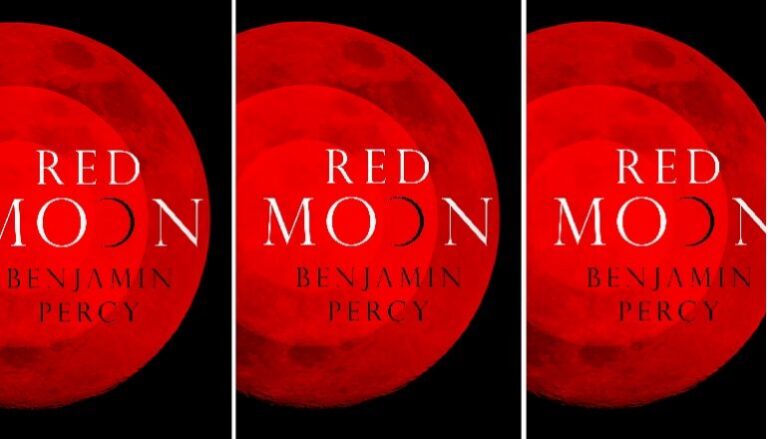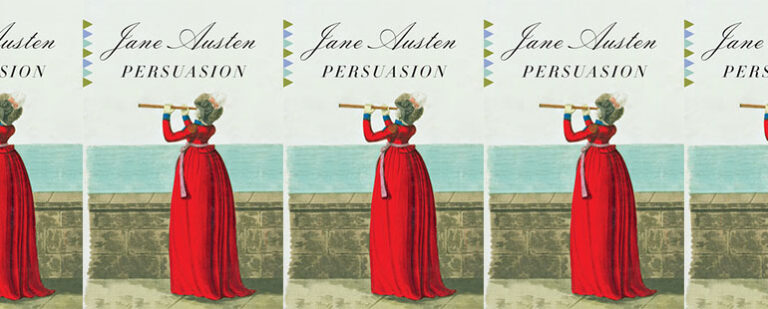Fictional Writer Master Class: The Bamboozlers
One of the perks of working in academia is ordering desk copies of books. While more often than not these things are tedious tomes that would put me to sleep, never mind my students, sometimes I happen upon gems, such as The Twentieth-Novel: An Introduction by R.B. Kershner. I’ll admit I don’t remember ordering this book; I think in my book ordering frenzy, I had some sort of black out. Thankfully I did order it, if just for Kershner’s description of fiction: “an elaborate and sustained falsehood.”
With pretense stripped away, fiction is a well-crafted lie. A beautiful, artistic, transcendent lie, but a lie whatever the adjective. Thus, writers are the fabricators, the prevaricators, the weavers of dazzling deceptions. It’s not surprising then that every couple of years, we get a movie or television show where the plot spins a literal take on writers as liars. The Words is probably the most mainstream recent work, but even shows like American Dad and Law & Order: SVU have twisted plots around these writers we’ll call the Bamboozlers. These stories address through their characters many themes which are familiar to real writers: originality, success, ownership, image, integrity, and perseverance.
Bamboozler stories have two primary forms. The first usually centers on a fictitious struggling writer (the Plagiarist) who takes credit for another writer’s work. The second finds a talented writer (the Obscure) who must, for whatever plot reason, find an avatar (the Front) for public consumption while remaining shrouded in anonymity.
The Plagiarist
Departing from his Hangover rinse and repeat, Bradley Cooper played the Plagiarist in The Words. The story isn’t particularly new—struggling writer discovers brilliant manuscript, slaps his name on it, and becomes overnight success. Guilt eats at him. Commence drama. The Plagiarist character interprets the creation and success parts of writing as different animals. It is never some non-writer who steals the work—the Plagiarist has experienced failure despite working through his own creative process. Thus the Faustian temptation of selling out his integrity for success is too much to reject. He naively equates commercial and financial attainment with artistic fulfillment.
The idea of the Plagiarist as a fictional character is intriguing. How many times as writers do we read something and wish desperately that we had written it? It is less jealousy and more wonder, at someone else’s ability to sculpt words into something fresh—even when it seems everything that can ever be said has been. Writers from Voltaire to Melville have commented on originality as a futile exercise when most writers borrow from other writers. Yet the Plagiarist takes that to an extreme, sacrificing his own artistic need for a tangible compensation while stealing someone else’s work.
For me, the appeal of these types of Bamboozler stories is as a reminder of why I write. I have a really unfortunate habit of selecting non-lucrative careers (acting, teaching, writing). Someone mentioned buying a lottery ticket the other day and I almost laughed, until I realized I’m essentially playing the lottery as a life choice, only with a laptop instead of a scratch-off. The chances that I will ever be able to support myself solely on my writing are slim, much as I might fantasize otherwise.
Unlike the Plagiarist, though, I recognize that despite my frustrations, I have the need to claim my work, to imprint it as my own. A few weeks ago I was fortunate enough to be on a writing panel at a conference. Responding to questions, talking about my work in the personal way that only I can, was thrilling, if solely for the knowledge that it is uniquely mine. It may be consumed, judged, reinterpreted, or dissected, but the core of it came from me.
The Front and the Obscure
On the other side of the spectrum, there are the Front and the Obscure. Beyond the realm of pen names or ghostwriting, the Obscure is someone who is driven to write, yet cannot be the face of the work. Law & Order: SVU did this last season with a story about a well-respected, older professor who knocked out some mommy porn and then enlisted a young, pretty former student to be the “author,” or the Front.
The image-driven element of this pact is perhaps the most fascinating part of the story. Many others have nom de plumes to avoid embarrassment or unwanted expectations. But in this age where the writer as a person is more visible than ever, the image aspect creeps into the writing. I almost snorted my coffee recently when I read some guidelines for a literary magazine asking writers NOT to send head shots. While I’m certainly guilty of having an author head shot, the idea of sending it as part of my submission seems ludicrous. I wonder, however, how much authorial image plays into literary success.
 An excellent and more literary example of a story featuring a Front and an Obscure is Margaret Atwood’s The Blind Assassin, a nesting doll narrative of stories within stories. The fictional book that weaves throughout the main narrative, also called The Blind Assassin, is believed to be written by gifted Laura Chase who died young in a tragic car accident. SPOILER ALERT: Laura’s older sister, Iris, wrote the novel as a chronicle of her affair with a revolutionary. To protect herself and her family, Iris presents the work as the ‘found’ novel of her late sister. One of threads of the book addresses how Laura in death is dissected and interpreted, shaping the understanding and success of the novel.
An excellent and more literary example of a story featuring a Front and an Obscure is Margaret Atwood’s The Blind Assassin, a nesting doll narrative of stories within stories. The fictional book that weaves throughout the main narrative, also called The Blind Assassin, is believed to be written by gifted Laura Chase who died young in a tragic car accident. SPOILER ALERT: Laura’s older sister, Iris, wrote the novel as a chronicle of her affair with a revolutionary. To protect herself and her family, Iris presents the work as the ‘found’ novel of her late sister. One of threads of the book addresses how Laura in death is dissected and interpreted, shaping the understanding and success of the novel.
The Front in this case is a dead girl who, like Sylvia Plath, inspires a cult of fascination that has as much to do with her tragic life as her work. Iris the Obscure must eventually write her own story of truth as her final act to claim her legitimacy. As she tells the reader, “The living bird is not its labelled bones.”
Even without a Front, sometimes I feel like there is a disconnect between the labelled bones (bios, CV, author photo, publication list) and the living bird (my writing). Writers may have an image, but the truth is more than that—it stretches beyond lists and bylines.
 Spinning a different tale of the Front and the Obscure is the aptly titled 1976 Bamboozler flick, The Front. Woody Allen, who is like the Stephen King of movie writer characters (most of his protagonists are writers), surprisingly did not write or direct this particular movie. Instead, he plays Henry Prince, a cashier who fronts as the public face of blacklisted television writers during the 1950s. Screenwriter Walter Bernstein, along with many other cast and crew members who worked on the film, were actually blacklisted during McCarthyism.
Spinning a different tale of the Front and the Obscure is the aptly titled 1976 Bamboozler flick, The Front. Woody Allen, who is like the Stephen King of movie writer characters (most of his protagonists are writers), surprisingly did not write or direct this particular movie. Instead, he plays Henry Prince, a cashier who fronts as the public face of blacklisted television writers during the 1950s. Screenwriter Walter Bernstein, along with many other cast and crew members who worked on the film, were actually blacklisted during McCarthyism.
History is filled with dark days where artists and intellectuals have lived in fear. The Front is shrewd in its avoidance of directly attacking the politics, instead electing to look at the impact of silencing artists. The writers who use Henry as their Front are not only trying to make a financial living—they are fighting to survive intellectually and spiritually. They are the foils for the Plagiarist: they desire their work be heard, even if it is without personal notoriety. In our social media, self-publishing, self-promoting world, how many people would write just to write, even if it meant dying in obscurity? I would venture a guess that the marketplace would be much leaner were that the case.
In the end, we writers must drift along on our thrones of deception, our pants in flames. The challenge is weaving beautiful falsehoods while maintaining identity and integrity. Remember, in the end, the work is all that stands.


